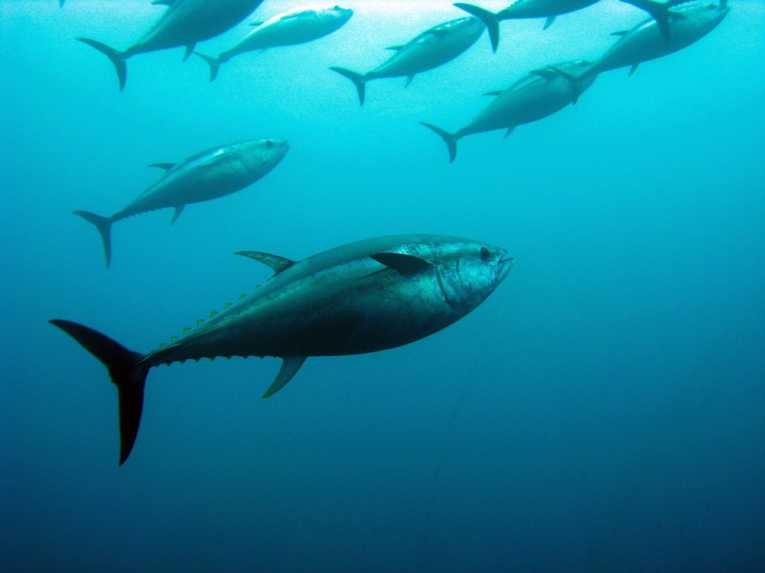Bluefin tuna consumption poses a risk to oceans and people. Despite being an endangered species and the subject of a world-wide agreement to not over-fish, Bluefin tuna is still served at sushi restaurants around the world.
It's beautiful and delicious and sushi eaters are willing to pay a premium for the fatty, meaty fish. The truth is, many people either don't know about the tuna's status or don't believe it's as bad as many scientists are saying, which is that we'll be out of Bluefin tuna as early as this year.
They are that endangered.
Difficulties tracking and managing Bluefin tuna
Besides the species being highly endangered and over fished despite regulations, Bluefin tuna accumulate toxins like mercury in their bodies, which get passed along to happy restaurant goers.
Because the species lives in almost every ocean and migrates to reach an immense number of countries, Pacific Bluefin tuna and Atlantic Bluefin tuna (also classified as northern and southern Bluefin tuna) can be caught and eaten around the world. This also makes them especially hard to monitor: when different nations are competing for one resource in the open ocean where no one has jurisdiction, the international regulations are near impossible to enforce and it becomes a free for all.
Pacific Bluefin Tuna
Pacific Bluefin tuna spawn off of the coast of Japan and travel all the way to California and Mexico, where they're caught (often before they get the chance to return to Japan to reproduce, further depleting their numbers).
Turns out that some of these tuna, which were born last year in the radioactive waters of Japan after the Fukushima nuclear reactor meltdown, have carried their radioactivity to the United States.
Though most of the Bluefin tuna caught here are shipped right back to Japan, the fish ends up on more and more American plates every year as the demand for sushi, and this delectable animal, increases. The radioactive chemicals present in the fish do not pose a health risk to people, fortunately, as they're still below the dangerous levels set by the US government.
Atlantic Bluefin Tuna
The other subspecies, Atlantic Bluefin tuna, spawns in the Gulf of Mexico, another highly damaged part of the ocean, and in the Mediterranean Sea. This Bluefin tuna is easily caught in the clear waters of the Mediterranean because planes can see the schools and catch them before they even get to open waters, and the spawning grounds in the Gulf are so damaged by the BP oil spill two years ago that they aren't reproducing as quickly as normal, with estimates of juveniles down 20%.
That number, combined with the fact that the fish are being hunted far faster and in far greater quantities than they can naturally replenish, the Atlantic Bluefin population is quickly headed for collapse. It will be some time before the Gulf is back to its normal condition and stocks of fish and other species can live and reproduce naturally again, and that isn't going to help the Bluefin.
The bottom line for Bluefin tuna
Demand for the fish certainly isn't going away, making restaurants reluctant to remove the species from their menus or raise prices to curb the demand, which means Bluefin tuna will continue to be over-fished until the population collapses, which is predicted to happen as early as this year.
Once it collapses there will have to be a complete moratorium on Bluefin tuna fishing to allow the population to come back, but even if given the chance it will take decades due to the late sexual maturity of the fish, its particular needs and limited spawning grounds (two thirds of which are heavily damaged). The radioactive and mercury levels present in Bluefin tuna should also be taken into consideration.










